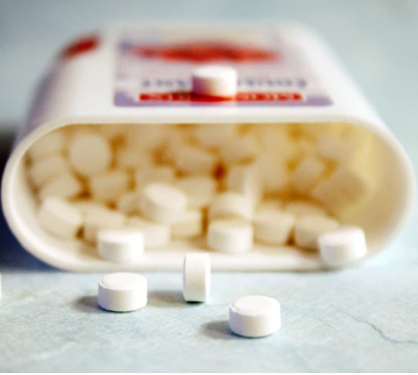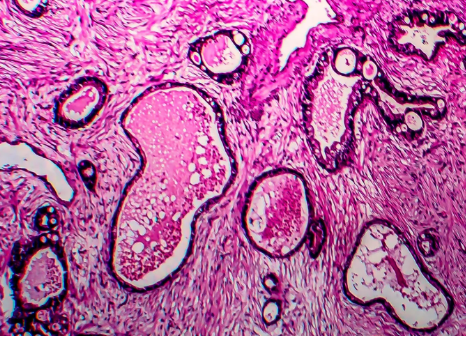Let’s try to pick up a toothpaste package or a can of a diet drink and carefully read the ingredients list, you may come across the words “Aspartame,” but what is it?
Aspartame is an artificial sweetener 200 times sweeter than sugar and is used in more than 6,000 products, such as diet drinks and chewing gum.
Over the past four decades it has been the subject of much controversy and debate linking it to an increased risk of cancer and other health problems.
Sweetener consists of three main components that are then metabolized by our body: phenylalanine, aspartic acid and methanol; this last molecule is then metabolized into formic acid, which can damage the DNA.
However it must be remembered that these three molecules are also present in our body as a result of ingesting other foods or beverages, not only through Aspartame. For this reason, it is extremely difficult, if not impossible, to detect this sweetener in blood tests and to clearly understand its effects.
In the United States, the government agency known as the Food and Drug Administration (FDA) approved it as a sweetener in 1974, and in 1981 the JECFA, which is the expert committee on food additives between the Food and Agriculture Organization of the United Nations (FAO) and the World Health Organization (WHO), established an acceptable daily intake of 40 milligrams per kilogram of body weight; for an average adult, this means ingesting about 2. 800 milligrams per day, equivalent to 9 to 14 cans of diet drinks.
In 2019, the International Agency for Research on Cancer (IARC) strongly recommended an evaluation of a number of substances, including Aspartame, based on newly emerging scientific evidence. IARC’s evidence of a possible link between Aspartame and liver cancer comes from three studies that examined the consumption of artificially sweetened beverages.
The first study published in 2014, followed 477,206 participants in 10 European countries for more than 11 years and showed that consumption of sweetened soft drinks, including those containing Aspartame, was associated with an increased risk of a type of liver cancer known as hepatocellular carcinoma.
The second conducted in the United States in 2022 showed that consumption of artificially sweetened beverages was associated with liver cancer in people with diabetes.
The third has involved 934,777 people in the United States from 1982 to 2016 and has found an increased risk of pancreatic cancer in men and women who consumed artificially sweetened beverages.
Additional research was conducted by Mathilde Touvier, a researcher at the French National Institute of Health and Medical Research in Paris.
This study was included in the IARC assessment and considered the intake of Aspartame from different food sources, including soft drinks, dairy products and table sweeteners. It was found that, among 102,865 adults in France, people who consumed higher amounts of Aspartame, but less than the acceptable daily intake recommended by JECFA, had a higher risk of breast cancer and obesity related cancers; however, the statistical significance was not such that further investigation of this issue was warranted.

The IARC, WHO and JECFA published an assessment on July 14, 2023, concerning the health impact of this sweetener classifying it as “possibly carcinogenic“. This classification is generally used when there is limited, but not convincing, evidence of cancer in humans or convincing evidence of cancer in experimental animals but not both.
JECFA stated that the recommended daily limits for consumption of this sweetener will not change, as the expert committee said it is safe for a person to consume it within the daily limit; this is because insufficient evidence was found to reduce the acceptable daily dose.
“There is no convincing evidence from experimental or human data that aspartame has adverse effects after intake, within the limits set by the previous committee.” said Francesco Branca, director of WHO’s Department of Nutrition and Food Safety, July 12, 2023 in Geneva.
Studies associating Aspartame with liver, breast and blood cancers were also evaluated but the researchers concluded that the results were inconsistent. In fact these studies had several limitations, for example, they could not exclude possible external factors or were based on self-reported daily intake of Aspartame through diet.
“Dietary records are not always the most reliable. We don’t ingest Aspartame as a single agent but it is part of a combination of chemicals and other elements.” says William Dahut, chief scientific officer of the American Cancer Society based in Bethesda, Maryland.
How should we deal with it?
“We are not advising companies to withdraw products, nor are we advising consumers to stop consuming them altogether but to limit their consumption.” says Francesco Branca.
Moreover, it should not be forgotten that the category of agents defined as “possibly carcinogenic” to humans also includes aloe vera extract and caffeic acid found in tea and coffee.
The debate regarding Aspartame is only just beginning. Further studies will be needed in the future both to explore the impact of this sweetener on metabolic processes and potentially related diseases and to further investigate and better describe its potential effects on human health.
SOURCE:





